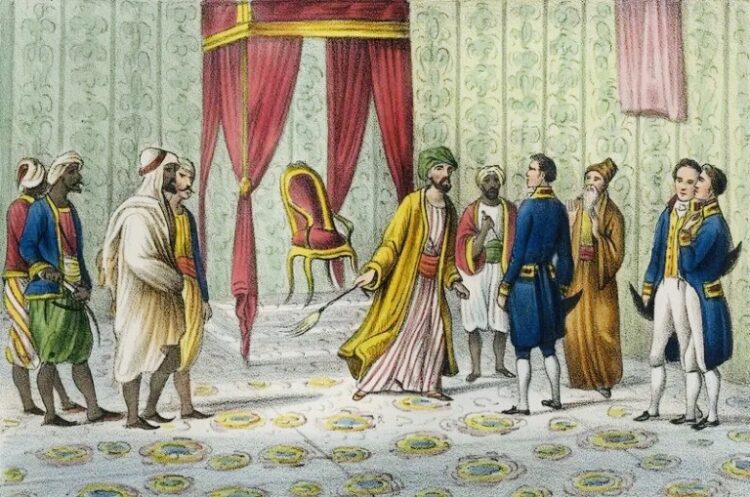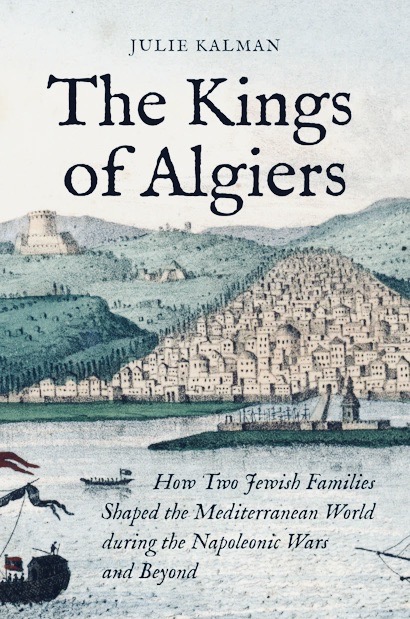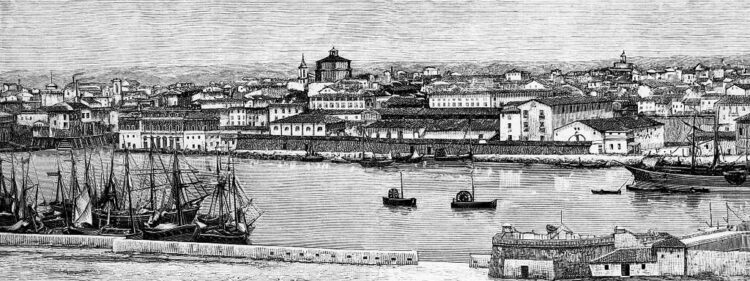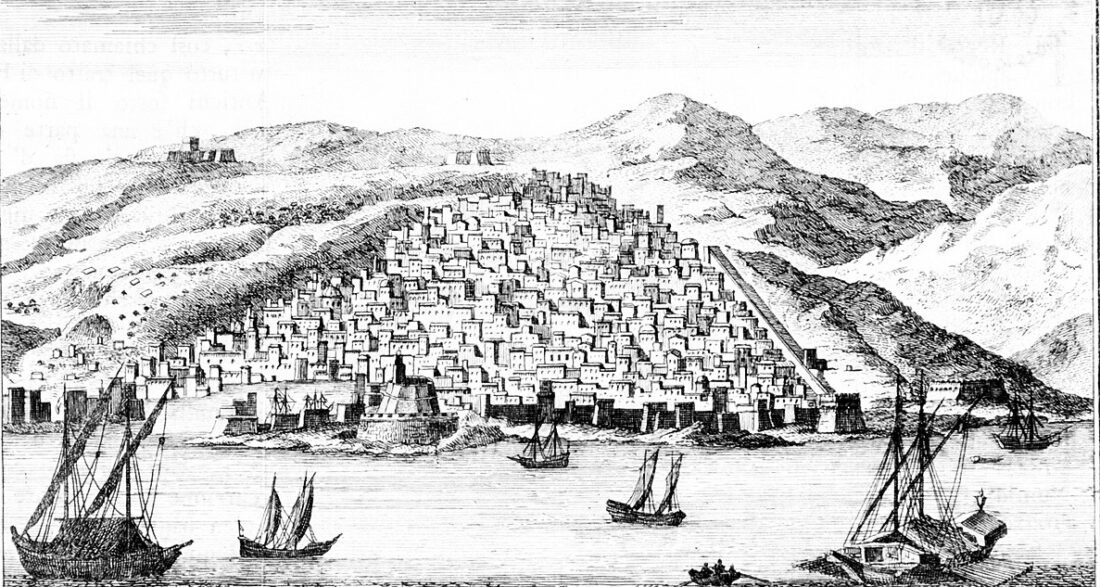Algiers was a major trading port in the Mediterranean Sea at the end of the Napoleonic wars in the late 18th century and four decades into the next century. Merchant ships brought in a constant flow of luxury goods prized by the ruling Turkish elite, stevedores loaded outgoing vessels with Algerian grain, wool, meat, leather and coral, and corsairs, or pirates, roamed the sea, capturing ships and enslaving passengers.
Algerian traders, many of whom were Jews, bought and sold everything that came through the port and were a vital link between the powers-that-be in Algiers and the outside world. Jews dominated this lucrative trade largely because there was no significant Christian minority to complete with them.
Probably the best-known Jewish traders during this period were the five Bacri brothers — Mordecai, Joseph, Abraham, Salomon and Jacob — their children and their nephew, Naphtali Busnach.
They established extraordinary trade networks all around the Mediterranean basin and beyond.

They owed their success, in part, due to their ability to gain the trust of the deys, the rulers of Algiers, a semi-independent province, or regency, of the Ottoman Empire, which had close relations with Britain and France. The deys relied on the Bcaris as intermediaries in both trade and diplomatic negotiations with France, Britain and the United States, the countries that had vital economic and political interests in the area.

Their rise and fall is charted by the Australian historian Julie Kalman in The Kings of Algiers (Princeton University Press), an impressive account that leaves no stone unturned.

In her view, the Bacris were “perfectly placed” to profit from the shipping chaos triggered by the Revolutionary Wars, which washed over the Mediterranean in 1793. With France at war with Britain, Holland and Spain, reliable sea routes could no longer be accessed, further spurring the demand for basic supplies.
The Bacris took advantage of this tumult and filled the gap. Recognizing their role in this vital process, Richard O’Brien, the U.S. consul in Algiers in the waning years of the 18th century, dubbed the Bacris and Busnach “the kings of Algiers.”
Kalman cannot pinpoint their origins, but she is certain that they spoke Judeo-Arabic, the dialect of Middle Eastern Sephardi Jews, and lived in the Italian city of Livorno before decamping in Algiers in 1774. By the mid-18th century, Livorno was home to the second-largest Jewish community in Western Europe after Amsterdam.

According to Kalman, the Bacris and Busnach worked cooperatively through their trading houses in Algiers, Livorno, Marseilles and Paris and their agents in Malaga, Alicante, Madrid, Genoa, Cadiz, Lisbon, London, Amsterdam and Barcelona.
They were successful due to a combination of factors, she argues. “Circumstances in Algiers allowed them to do so: the lack of Christian competition, the space made for Jews that allowed them to form relationships with the elite, the chaos of the war, and the needs of the Western powers all combined to create perfect conditions for the two families. They knew how to manipulate local practices, interests and regulations … to their advantage.”
Yet they were remarkably vulnerable. Two of the Bacris, as well as Busnach, were murdered by a dey, and family quarrels led to their downfall.
With the dissolution of their business empire, the Bacris returned to Europe and reestablished themselves as antique and antiquities dealers.
The only trace today of their outsize presence in Algiers is a small, blue Star of David affixed to an arched doorway that leads into the National Museum of Popular Arts and Traditions, which was once the palatial home of Joseph Bacri, the founder of this powerful and influential dynasty.
